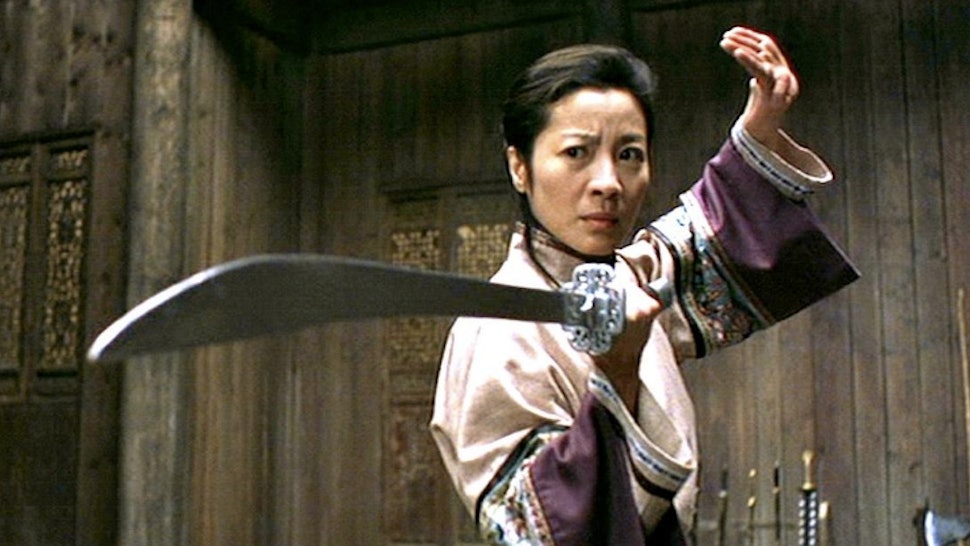I guess the fighter has been a hobby-horse of mine lately. The image of the 'fighter' both in old-school and newer editions is distinctly lacking; the attitude that 'human fighter' is a bland, vanilla default is fairly prevalent, and I think it's the result of lacking imagination instead of some deficiency of the class or role.
There's a line in CT,HD (actually, the Netflix subtitle translation of the line, so I can't speak to original Chinese). Two of our protagonists, the warrior Shu Lien and the Yu princess Jen discuss the fighter's lifestyle.
Jen: It must be exciting to be a fighter.
Shu Lien: Fighters have rules too. Friendship, trust, integrity. Always keep your promise. Without rules, we wouldn't last long.

I couldn't tell you exactly what 'fighter' means in the original, but I feel correct in applying the word here. Fighters, as shown in the movie are almost supernaturally powerful; our protagonists can run on the treetops, take down dozens of lesser warrior in combat, crack the earth with their strikes. Yet they're still vulnerable, not only to each other's combat abilities or the Jade Fox's poisons, but to external forces that don't go away if you punch them in the face.
If you squint, CT,HD is a candidate for Joseph Manola's Romantic Fantasy; there's a bunch of epic fights, but they rarely solve anything on their own. There's a revenge plot, but it (predictably) doesn't turn out very well for any of the parties involved.
Real improvements come from bonding, talking, offering mercy. In this context, the fighter's rules make a whole lot of sense: friendship, trust, integrity. If other fighters can't depend on you, if you can't depend on them, it doesn't matter how good your mastery of Wudang is, you're going to end up on the floor.
In such a world, a fighter's goal isn't just to kill things, but to make strong allies, find trustworthy friends and become somebody worth trusting. That, not just beating the shit out of people, is the fighter lifestyle
In CT,HD, that fighter lifestyle is the domain of a very few; in your world, that may or may not be the case. But unless you're running a romantic fantasy game, or otherwise one in which most people are not involved in fighting, the default assumption in fantasy RPGs is that everyone does some share of combat. Capital-F Fighters are the most specialized, but all sorts of people can hold their own in a scrap. This is especially true for PCs, in particular those in later editions of D&D. Fighting isn't the domain of the fighter anymore; every wizard, rogue, cleric, sorcerer, warlock etc. is built with combat in mind.
From this, we should expect that everyone participates in the fighter lifestyle, which is defined by the routine exposure to life and death conflict rather than any specialization in non-magical fighting. Friendship, trust, integrity, keeping your promises. These are essential for characters in the violent worlds they tend to inhabit. They will be judged on how well they keep to these rules.
How do you apply this to your game? I would start by reiterating that the PCs do not exist outside of society; they are not an island. There are consequences for their behavior, good and bad, not just from authority figures but from common people. If they are judged honorable according to this standard, people will seek them out for help, training, or just to meet them. If they are dishonorable, they will also be sought out, but for altogether less pleasant reasons.
In most campaigns, this can be brought home by making sure there are benefits for being in good with society. The option to become a murderhobo, to disdain the judgement of society and go out on one's own, will always be available, and always tempting. But don't make it an easy choice.
No comments:
Post a Comment